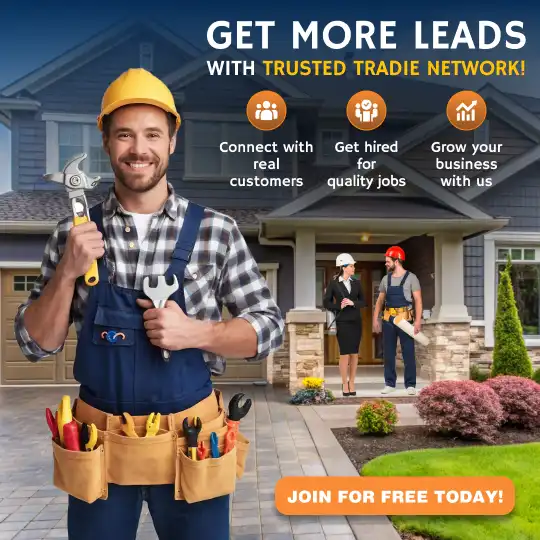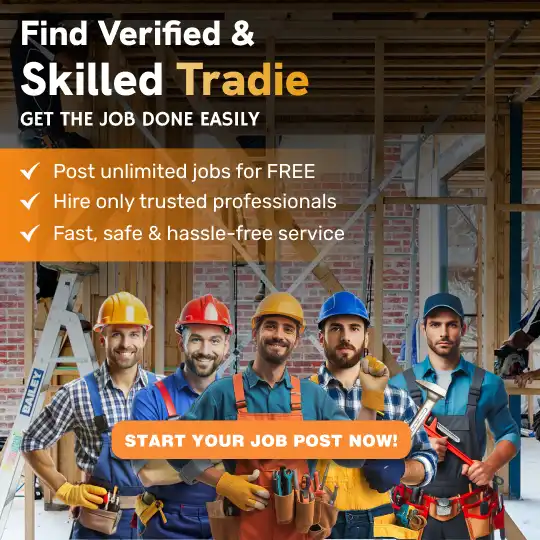The Rise of Mental Health Awareness Among Aussie Tradies

Australia’s trade industry has always been characterized by difficult work, long hours, and hectic schedules. Behind the strong image, many tradies carry the burden of anxiety and depression that are often overlooked. Mental health in construction is significant because it determines how a tradie feels, works, and interacts with others daily.
When a tradie is mentally down, it often reflects in mood changes, lack of motivation, and sometimes, errors at sites. These always have both safety and productivity implications. Fortunately, an increasing number of individuals in the tradie culture are now being open about the issue of mental health.
Acknowledging tradie mental health is the most important step toward creating safer and more joyful workplaces. Let’s understand in detail why there is growth in mental health awareness among Aussie tradies.
Growing Mental Health Challenges Among Aussie Tradies
The incidence of mental health problems is increasing in Australia. Mental health in tradies is becoming a growing concern. The Australian tradies are among the most stressed groups. Let’s explore the hurdles they come across.
1. Long and Demanding Workdays
Tradies are mostly engaged in work that starts at very early hours and ends in the late evening. They perform tasks such as carrying heavy tools, climbing ladders, and venturing into the use of their bodies. This leads to no work-life balance for tradies.
2. Pressure to Appear Strong
Many tradies feel they cannot show stress or admit they are struggling. In an environment where toughness is expected, sharing mental health concerns can feel like weakness. This is especially true for construction worker mental health.
3. Financial Stress
The work situation may become worse; the earnings to be made from it are uncertain. The rising prices for rent, petrol, and tools bring more pressure. For those in remote roles, such as FIFO mental health situations, financial pressure can add even more stress due to isolation from family.
4. Environment and Safety Risks
The sites for construction and trades can be noisy, dusty, or unpredictable, which, in turn, creates safety risks for both the worker and their team. This is why tradie support services are essential for maintaining mental well-being on demanding sites.
These problems demonstrate the reasons why it is necessary to provide support for mental health in construction Australia. Applying work-life balance tips for tradies can further reduce pressure and help workers manage their personal and professional lives better.
What’s Driving the Shift Toward Mental Health Awareness?
The awareness of mental health issues among tradies has increased as they realize that remaining silent is not a solution anymore. What they desire are genuine support, open communication, and practical solutions when they are under pressure. This transformation is an outcome of major changes that have taken place in the whole trade industry.
1. True Stories Inspire Open Talk
Hearing other tradies speak about their struggles breaks the idea that they must deal with everything alone. Real stories about stress, anxiety, or burnout inspire others to speak up. Social media, work sites, and training rooms spread these honest stories. They show that stress is normal, and talking about it is not a weakness.
2. Link Between Mental Health and Job Safety
Mistakes may lead to injuries, resulting in danger not only to the worker but also to the surrounding people. Many companies recognize that supporting mental health leads to safer work environments. Check-ins, clear communication, and fair work schedules are becoming standard practices, improving construction mental health outcomes.
3. Changing Work Culture
Young tradies expect workplaces that respect mental health and speak up when stressed. Seeing this confidence inspires older workers to feel braver about asking for support, reducing the stigma around seeking help. Over time, this shift is slowly creating a more open, supportive, and caring trade community.
4. Pressure of Life Outside Work
Rising living costs, family responsibilities, and busy daily routines increase mental pressure. Tradies often carry this stress home, which affects their mood, sleep, and overall well-being, creating a cycle of fatigue that makes everyday working tradie working life even more challenging and hard.
How Better Mental Health Support Improves Work and Safety?
Mental health awareness for tradies does more than improve mood. It has a direct influence on the person's concentration, the quality of work, and safety at the site. Let’s explore the key points that show how mental health support leads to better work and safety.
1. Sharper Focus and Fewer Mistakes
Supported workers are in a position to keep their attention longer. The causes of accidents, such as stress and lack of sleep, are minimized and reduce work pressure on tradies.
2. Effective Support Systems
Check-ins, short training sessions, and chats with colleagues are some of the simplest and most effective ways that help with tradie stress management. Stress goes down, and performance gets better.
3. Improved Team Communication
Teams whose members are free and willing to talk can recognize issues at an early stage and deal with them. Managers can organize workdays that are not only safe but also efficient
4. Confidence and Readiness
Mental health in the workplace helps tradies handle daily challenges safely and efficiently. Also, they will be mentally stronger, more stable, and able to anticipate their work tasks.
Trusted Tradie Network: Right Choice for a Safer Work Culture
When mental health in construction industry is discussed, Trusted Tradie Network stands out. It is a platform that not only focuses on worker safety but also on the overall well-being of the employees.
The platform ensures that tradies receive fair pricing, helping reduce financial stress, which is one of the biggest pressures in the industry.
Another big advantage is community support. Tradies on the platform feel part of a trusted group where they are appreciated for their skills and treated with respect. They work with verified clients who understand tradies’ time, efforts, and challenges, making the job experience smoother and reducing conflicts.
Miscommunication is a major source of stress. Trusted Tradie Network ensures job requirements, timelines, and expectations are clear from the start. When tradies know exactly what to expect, their workload becomes easier to manage, and stress levels stay low.
It combines skilled workers, fair practices, and genuine care for safety, leading to mental health awareness in trades.
Conclusion
Mental health awareness in construction across Australia is growing, which is good for several reasons. This was the result of long hours, heavy workloads, and daily stress that shouted the need for support and open conversation. When tradies feel heard, they can look after their minds and thus stay safe on site.
Tradie wellbeing increases the focus, lowers the chances of making mistakes, and promotes team spirit. Tradies can function properly and at the same time keep their mental health intact and be confident.
As awareness spreads and support systems grow, the trade industry is moving toward safer, healthier, and more confident workers. The steps taken today will help to create the future in which tradies will be able to flourish both at work and in life.
FAQs
1. Why is mental health a major topic among Aussie tradies now?
Long hours, high-pressure work, financial stress, and safety risks are pushing mental health into a major topic among Aussie tradies. They now recognize its impact on well-being and productivity.
2. What mental health challenges do tradies commonly face?
Tradies face common challenges like stress, fatigue, financial pressure, long shifts, isolation in FIFO roles, and the expectation to appear tough, all contributing to anxiety, burnout, and low morale.
3. How does mental health affect the quality of work?
Poor mental health reduces focus, increases mistakes, and slows problem-solving. Fatigue and stress make workers less efficient, raising safety risks and lowering overall job performance and quality of work.
4. What can employers do to support tradies' mental health?
Employers can support tradies’ mental health by providing check-ins, counselling, safe spaces, flexible schedules, and stress management resources, encouraging open conversations to reduce stigma and support worker wellbeing.
5. Are trades workplaces becoming more open about mental health?
Yes. Younger workers, training programs, industry initiatives, and shared experiences are making trades workplaces more accepting, encouraging open discussion about mental health support.

